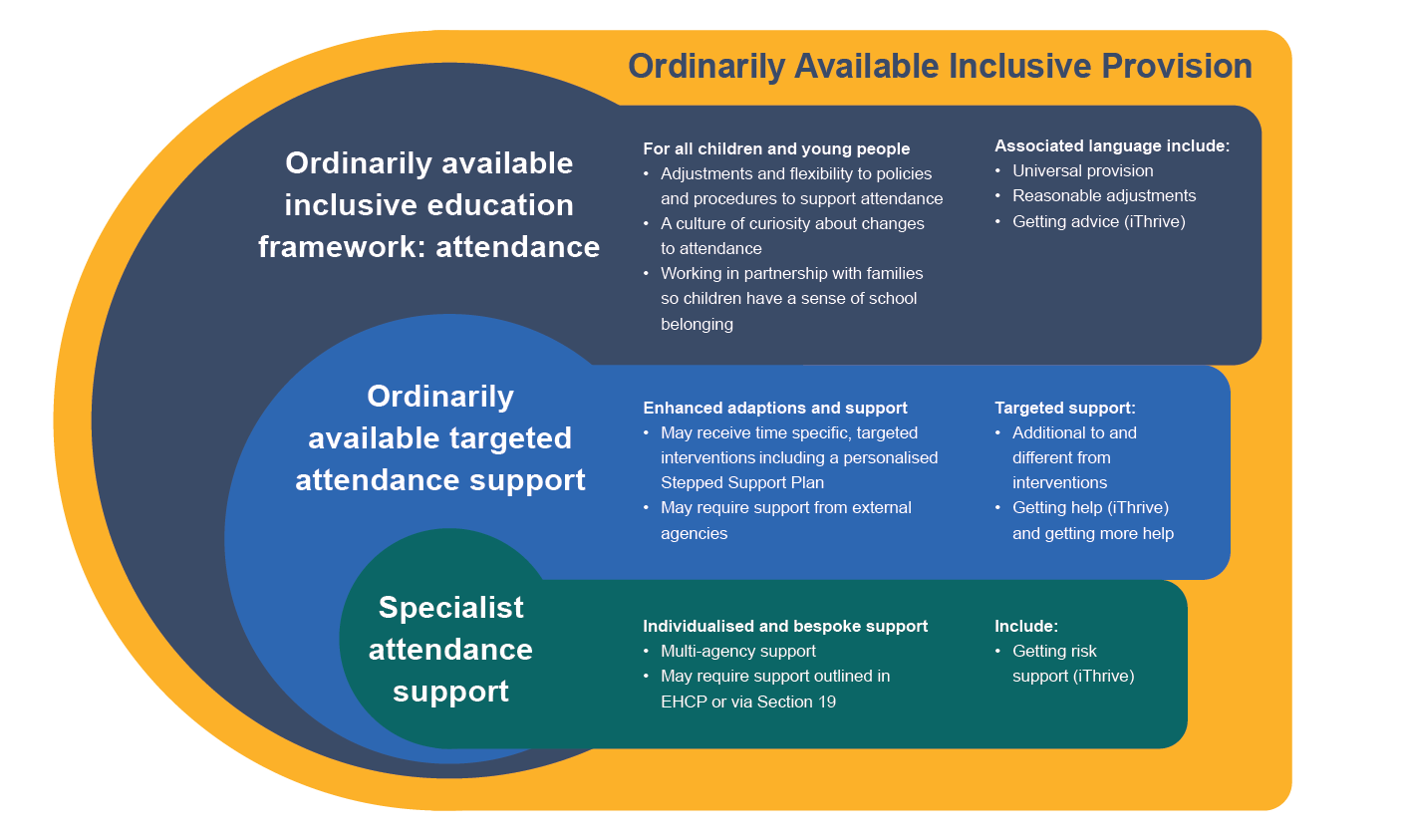Whilst most children can be supported to attend school through schools and families working well together and by good ordinarily available inclusive practice and provision, some children will require more help via ordinarily available targeted support.

Developing a stepped support plan
You can collaborate with your child’s school and your child to create a stepped support plan. This should identify your child’s worries, possible reasons behind non-attendance and a range of ordinarily available targeted support that can be put in place. This will involve setting some short and long-term goals together, so that you can measure whether progress is being made.
Your child’s input in the plan is crucial. The plan should be regularly reviewed to ensure the support is working or to make necessary adjustments.
Ordinarily available targeted support
Ordinarily available targeted support to help wellbeing and attendance can include:
- Daily check-ins for your child with a trusted adult at school, such as their teacher or teaching assistant.
- Time with an adult to discuss feelings and emotions, either one-on-one or in a group.
- Support to enhance your child’s friendship skills and address any conflicts.
- Agreed communication methods between home and school or ways for your child to contact you during the day if anxious, like a single phone call home.
- Changes to your child’s timetable. Adjusting your child’s timetable based on their preferences and difficulties can help them focus on subjects they enjoy, motivating them to attend school. Success in these subjects may reduce anxiety and boost their confidence. Some schools offer short-term positive interventions to help build friendships, confidence, and a sense of belonging, encouraging regular attendance.
- Part-time timetable (Annexe R). Sometimes it’s suitable for schools and families, along with external professionals, to agree on temporarily reducing a child’s school day. Since every child has a legal right to education, using a part-time timetable means limiting this right. Hence, it must be considered carefully and reviewed regularly to ensure it benefits the child.
- Guidance from external professionals such as the Education Inclusion Service, Attendance Improvement Officers, SEND advisory teaching teams, mental health support teams, education key workers and educational psychologists. Please note: not all schools have access to all these services.
- Referrals to additional Early Help or Health services to support the school, you, and your child, with clear timelines for these referrals.